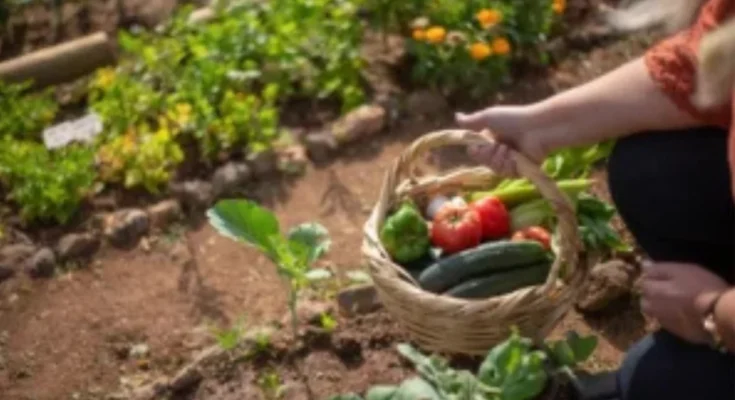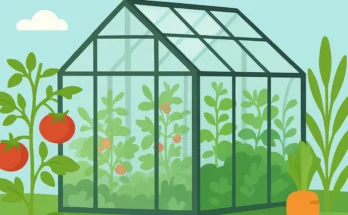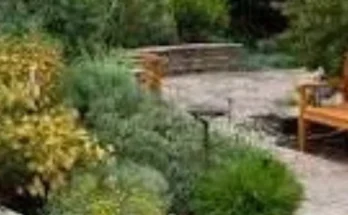Amidst our concrete jungles and urban skyscrapers, a new green revolution is taking hold. The urban gardener has now become an influential figure in recreating our city’s urban living spaces—transforming rooftops, balconies, backyards, and yes, even windowsills into viable patches of green.
What is an urban gardener? What motivates them, how do they go about their work, and why is this position more important now than ever in the 21st century?
This comprehensive guide will discuss everything you need to know about becoming an urban gardener, how to do so, and the increasing relevance of their place in society.
Table of Contents
- Definition of an Urban Gardener
- The History of Urban Gardening
- Why Urban Gardeners Matter
- Skills and Qualities of a Successful Urban Gardener
- Where Urban Gardeners Grow
- What Urban Gardeners Grow
- Tools and Equipment Needed
- Urban Gardening and Sustainability
- Challenges Urban Gardeners Face
- Becoming an Urban Gardener
- Community and Education
- The Future of Urban Gardening
- Final Thoughts
1.Definition of an Urban Gardener
An urban gardener (also referred to as an urban gardener or urban grower) is someone who grows plants—whether vegetables, herbs, flowers, or ornamental greens—in an urban or metropolitan environment. Urban gardeners, unlike gardeners living in rural environments who have large, open spaces, utilize smaller and more nontraditional spaces like:
- Balconies
- Rooftop
- Sidewalk strips
- Windowsills
- Vertical planters
- Community plots

Urban gardeners, are making a positive contribution in raising environmental awareness, creating a more beautiful urban landscape, or increasing access to fresh produce grown in urban environments.
2. The History of Urban Gardening
Urban gardening is not a new concept. Individuals who live in cities have sought ways to grown their own food in their backyards, parks, and rooftop gardens from Victory Gardens in World War II, to rooftop greenhouses and other urban farming.
During the war there was pressure on food supply, so people were asked to have places to cultivate gardens in their homes or communities. Urban gardeners may have a broader purpose—sustainability, access to food security, mental health, or the formation of community.
3. The Importance of Urban Gardeners
The role of the urban gardener is far more than just art, a hobby, or a passing interest. They are agents of change, tackling some of the greatest urban challenges we face today.
- Food Insecurity: An urban gardener grows their own food, fights against food deserts, and reduces dependency on imports.
- Climate Change: Urban greenery cools cities, improves urban air quality, and increases biodiversity.
- Mental Health: Gardening is a scientifically supported remedy for anxiety and stressful living.
- Social Cohesion: Community and collaborative gardening projects foster community and collaboration.
4. Skills and Attributes of a Successful Urban Gardener
There’s no formal training to be an urban gardener, however, a successful urban gardener usually exhibits the following skills and attributes:
- Creativity: Making creative uses of small spaces.
- Patience: Plants take time to grow and thrive.
- Environmental Literacy: Understanding sustainability is important.
- Problem-Solving: Dealing with pests, weather related, and urban pollution.
- Curiosity and Learning: Being informed about gardening trends and new techniques.

5. Where Urban Gardeners Grow
Urban gardeners have the ability to adjust to unique constraints that allow for both innovation and flexibility. Some of the most common growing locations include:
- Balcony Gardens: Pots, rail planters, and vertical towers.
- Rooftop Gardens: Larger garden beds which can grow vegetables and even small trees.
- Indoor Gardens: Using grow lights and hydroponic systems.
- Community Gardens: Shared plots for residents to collectively grow a garden.
- Guerrilla Gardens: Unofficial plantings in forgotten or neglected plots which are usually celebrated.
6. What Urban Gardeners Grow
Both urban gardeners and greater context garden horticulturists grow plants that exist in limited or controlled environments.
Some of the most common plants in urban gardens include:
- Vegetables: Tomatoes, lettuce, radishes, peppers, and beans.
- Herbs: Basil, cilantro, parsley, rosemary.
- Fruits: Strawberries, dwarf citrus trees, figs.
- Flowers: Marigolds, petunias, geraniums.
- Medicinal Plants: Aloe vera, lavender, mint.
7. Tools and Equipment Required for Urban Gardening
You don’t have to be a handyman to begin urban gardening, but there are some basics you will need:
• Planters and pots
• Good quality soil or compost
• Pruners / shears
• Watering can / hose
• Grow-lights (for indoor gardens)
• Vertical racks / shelving
• Organic fertilizers
8. Urban Gardening and Sustainability
As part of an urban gardener’s mission, is to promote sustainable living. The areas of sustainability that they embrace, include:
• Composting: Recycling kitchen waste into quality nutrition for soil.
• Rainwater Harvesting: Using collected rainwater for all irrigation needs.
• Native Plants: Ensuring biodiversity which requires lower water and less maintenance.
• Organic Practices: Avoiding harmful pest control practices including pesticides, and herbicides.

9. Issues for Urban Gardeners
Gardening in an urban environment comes with some concerns:
• Space: Innovation for limited spaces like vertical gardening, requires clever design.
• Pollution: Air or soil quality could impact plant health.
• Pests and wildlife: Birds, rodents, or insects are often common.
• Legality: Urban gardening could mean legal challenges. For example, some cities have laws against home rooftop gardens or certain modifications to balconies.
• Water Access: For urban gardeners in some high-rises, you do not have a faucet for daily watering.
10. Initiating an Urban Gardener
If you are interested in embarking on the journey of an urban gardener, here’s how to get started :
Step-by-step:
- Start Small: Start with herbs or a couple of vegetable plants.
2. Select a Workspace: Look for a spot with 4-6 hours of sun available.
3. Get Started with Containers: they have flexibility; you can move them around; great for beginners.
4. Educate Yourself on Soil and Fertilizer Use: Healthy soil = healthy plants.
5. Plan for Maintenance: watering, pruning, pest-checking.
6. Document Your Accomplishments: keep a garden journal for weekly updates and milestones.
11. Community and Education
Urban gardening is a collective effort. Many urban gardeners are involved with community, educational and outreach initiatives that:
- Help kids learn where their food comes from
- Provide workshops and seed swaps
- Create food co-ops
- Partner with schools and urban farms

12. The Future of Urban Gardening
The urban gardener will continue to grow in importance as cities grow bigger and climate change brings about a need for more sustainable living. More powerful concepts, like:
- Smart gardens (think IoT)
- Automated watering systems
- Green roofs and edible walls
- Vertical farming and hydroponics
are paving the way for a new generation of eco-conscious citizens.
13. Conclusion
To your question, “What is an urban gardener?” they are urban citizens who decide to live sustainably, creatively, and with intention. They are more than seed-sowers; they are weaving wellness, resilience, and community in an increasingly disconnected world.
By utilizing the abandoned spaces of urban areas by turning them into productive spaces, urban gardeners are revitalizing the lifeless, concrete city. If you can find a sunny window, some containers, and a sense of wonderment, you too can be an urban gardener.




Wow! Thank you! I continuously wanted to write on my site something like that. Can I include a part of your post to my blog?
I really appreciate your help http://www.kayswell.com
Thank you for writing this post! http://www.kayswell.com
Sustain the excellent work and producing in the group! http://www.ifashionstyles.com
How can I find out more about it? http://www.kayswell.com
Thanks for your help and for writing this post. It’s been great. http://www.kayswell.com
Thank you for writing this article. I appreciate the subject too. http://www.kayswell.com
Thanks for your help and for writing this post. It’s been great. http://www.hairstylesvip.com
You helped me a lot with this post. http://www.ifashionstyles.com I love the subject and I hope you continue to write excellent articles like this.
thanks
Thank you for being of assistance to me. I really loved this article. http://www.kayswell.com
Thank you for your articles. http://www.kayswell.com They are very helpful to me. Can you help me with something?
The articles you write help me a lot and I like the topic http://www.kayswell.com
May I request that you elaborate on that? http://www.hairstylesvip.com Your posts have been extremely helpful to me. Thank you!
Great content! Super high-quality! Keep it up! http://www.goodartdesign.com
Please provide me with more details on the topic http://www.kayswell.com
May I have information on the topic of your article? http://www.kayswell.com
Please provide me with more details on the topic http://www.kayswell.com
Good web site! I truly love how it is easy on my eyes and the data are well written. http://www.kayswell.com I am wondering how I could be notified whenever a new post has been made. I’ve subscribed to your RSS which must do the trick! Have a nice day!
Thanks for posting. I really enjoyed reading it, especially because it addressed my problem. http://www.kayswell.com It helped me a lot and I hope it will help others too.
Thanks a lot for sharing this with all of us you actually know what you’re talking about! Bookmarked. Kindly also visit my website =). We could have a link exchange contract between us!
Thank you for writing this article. I appreciate the subject too. http://www.kayswell.com
Thank you for your articles. They are very helpful to me. May I ask you a question? http://www.hairstylesvip.com
Thank you for being of assistance to me. I really loved this article. http://www.ifashionstyles.com
You helped me a lot with this post. http://www.kayswell.com I love the subject and I hope you continue to write excellent articles like this.
Please tell me more about this. May I ask you a question? http://www.kayswell.com
May I request more information on the subject? http://www.kayswell.com All of your articles are extremely useful to me. Thank you!
May I have information on the topic of your article? http://www.kayswell.com
May I request that you elaborate on that? http://www.hairstylesvip.com Your posts have been extremely helpful to me. Thank you!
Thank you for providing me with these article examples. May I ask you a question? http://www.kayswell.com
I enjoyed reading your piece and it provided me with a lot of value. http://www.kayswell.com
Can you write more about it? Your articles are always helpful to me. Thank you! http://www.kayswell.com
A person necessarily lend a hand to make critically articles I might state. That is the first time I frequented your web page and to this point? I surprised with the research you made to create this actual put up amazing. Wonderful activity!
Your articles are very helpful to me. May I request more information? http://www.kayswell.com
Your articles are extremely helpful to me. May I ask for more information? http://www.kayswell.com
I really appreciate your help http://www.kayswell.com
Your articles are very helpful to me. May I request more information? http://www.kayswell.com
Thank you for your articles. I find them very helpful. Could you help me with something? http://www.kayswell.com
I really appreciate your help http://www.ifashionstyles.com
Great beat ! I would like to apprentice while you amend your web site, http://www.kayswell.com how could i subscribe for a blog site? The account helped me a acceptable deal. I had been a little bit acquainted of this your broadcast provided bright clear concept
May I request that you elaborate on that? http://www.kayswell.com Your posts have been extremely helpful to me. Thank you!
Can you write more about it? Your articles are always helpful to me. Thank you! http://www.kayswell.com
I like the helpful information you supply on your articles. I抣l bookmark your blog and take a look at once more here regularly. I’m fairly certain I抣l be told many new stuff right here! Best of luck for the next!
I want to thank you for your assistance and this post. It’s been great. http://www.ifashionstyles.com
May I request more information on the subject? http://www.hairstylesvip.com All of your articles are extremely useful to me. Thank you!
Well I truly liked reading it. This subject procured by you is very practical for accurate planning.
Your articles are very helpful to me. May I request more information? http://www.kayswell.com
Great beat ! I would like to apprentice while you amend your web site, http://www.kayswell.com how could i subscribe for a blog site? The account helped me a acceptable deal. I had been a little bit acquainted of this your broadcast provided bright clear concept
You helped me a lot by posting this article and I love what I’m learning. http://www.hairstylesvip.com
Thanks for your help and for writing this post. It’s been great. http://www.kayswell.com
Thank you for writing this post. I like the subject too. http://www.kayswell.com
Hello there! I could have sworn I’ve been to this blog before but after checking through some of the post I realized it’s new to me.Anyways, I’m definitely glad I found it and I’ll be bookmarking and checking back frequently! http://www.kayswell.com
Hello there, You’ve done a great job. I will definitely digg it and personally recommend to my friends. I am confident they will be benefited from this website. http://www.hairstylesvip.com
My partner and I stumbled over here coming from a different page and thought I might check things out. I like what I see so i am just following you. Look forward to finding out about your web page yet again. http://www.kayswell.com
That is a very good tip especially to those new to the blogosphere. Short but very accurate information… Many thanks for sharing this one. A must read article! http://www.kayswell.com
Sweet blog! I found it while searching on Yahoo News. Do you have any tips on how to get listed in Yahoo News?I’ve been trying for a while but I never seem to get there! Many thanks http://www.kayswell.com
What i do not understood is actually how you’re no longer really much more well-preferred than you may be now. You’re very intelligent. You know thus significantly in terms of this subject, made me personally believe it from a lot of numerous angles. http://www.kayswell.com Its like men and women aren’t interested unless it’s something to do with Girl gaga! Your individual stuffs great. At all times deal with it up!
I know this if off topic but I’m looking into starting my own blog and was curious what all is needed to get setup? I’m assuming having a blog like yours would cost a pretty penny? I’m not very web savvy so I’m not 100 sure. Any recommendations or advice would be greatly appreciated. Thanks
Hello There. I found your blog the use of msn. This is a really well written article. I will make sure to bookmark it and come back to read extra of your useful info. Thanks for the post. http://www.kayswell.com
It’s amazing to pay a visit this site and reading the views of all friends regarding this paragraph, while I am also keen of getting know-how. http://www.hairstylesvip.com
Hello to all, the contents existing at this web page are genuinely remarkable for people knowledge, well, keep up the good work fellows. http://www.kayswell.com
Thank you for any other fantastic article. The place else may anyone get that type of info in such an ideal means of writing? I have a presentation subsequent week, and I’m at the search for such information. http://www.hairstylesvip.com